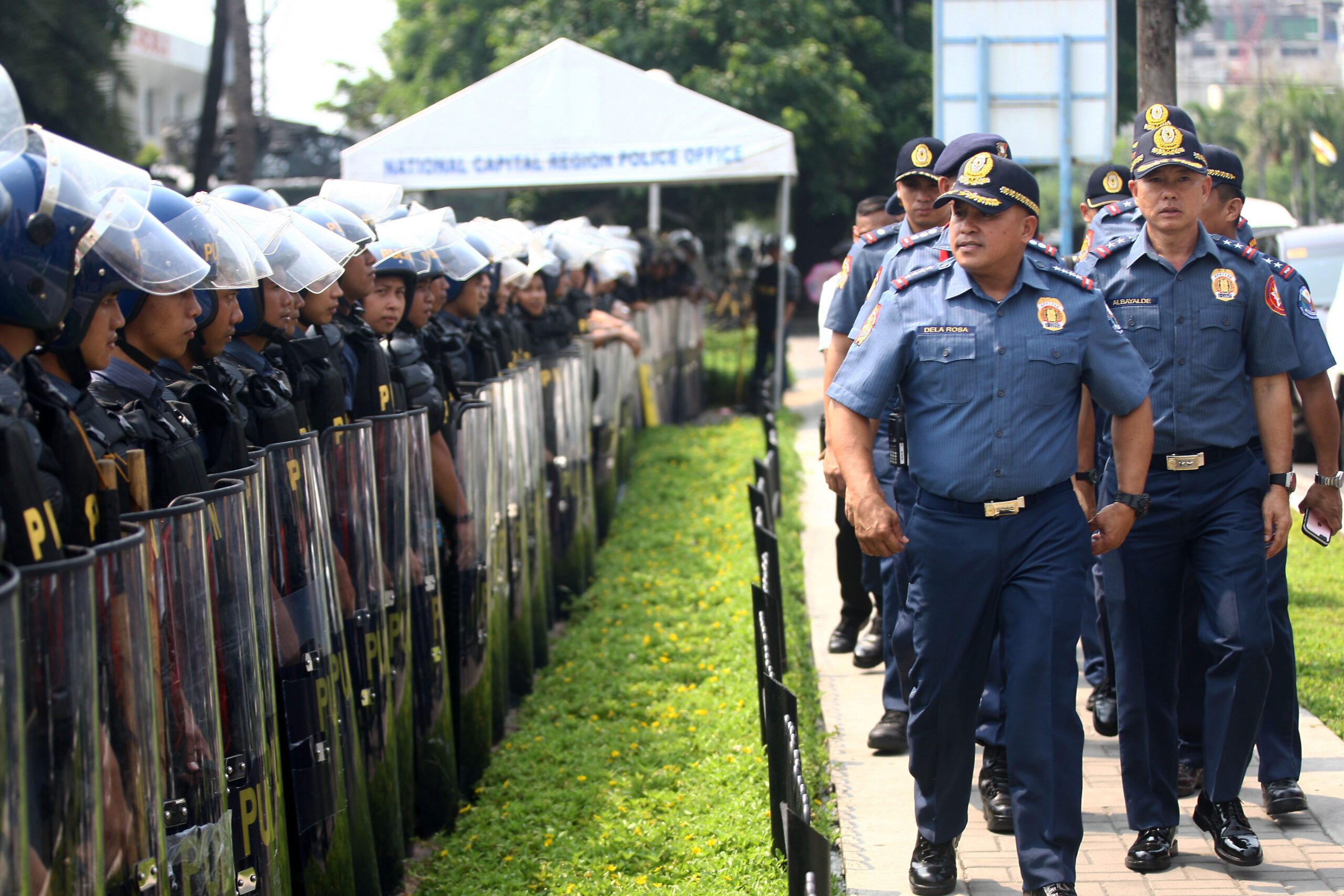SUMMARY
This is AI generated summarization, which may have errors. For context, always refer to the full article.

MANILA, Philippines (UPDATED) – The Philippine National Police (PNP) is prepared to return to President Rodrigo Duterte’s war on drugs, the PNP said on Thursday, November 23.
“We will follow the directive of the President, Chief Executive, and Commander-in-Chief,” PNP Spokesperson Chief Superintendent Dionardo Carlos said in a text message.
“We are ready,” he said in another text message.
According to Carlos, the PNP’s oversight committee on their drug war campaign will hold a meeting on Thursday to plan their return. (READ: PNP holds training in case police are reassigned to drug war)
This follows President Rodrigo Duterte announcing on Wednesday evening, November 22, that he will put the PNP back in his landmark campaign, over a month after it was solely delegated to the Philippine Drug Enforcement Agency (PDEA).
He admitted that the PDEA cannot do it alone, a concession long acknowledged by the anti-drug agency. (WATCH: Rappler Talk: PDEA on leading the drug war without the PNP)
Police preparations
The PNP has a lot to prepare for. For one, they have already dissolved all their Drug Enforcement Units (DEUs), or the teams that took charge of anti-illegal drugs operations in each police station.
The PNP’s impending return also comes at a time when their campaign plan – Oplan Double Barrel – has been put to question at the Supreme Court. (READ: PNP suspends Oplan Double Barrel, again)
The petitioners argued that the campaign is “unconstitutional” as the guidelines have been open to abuse by police officers — a sentiment that critics and human rights advocates have long said.
No less than the PDEA chief Director General Aaron Aquino also advised the PNP to consider changing their guidelines to address these criticisms.
Their return will be scrutinized more than ever, as this is their third try at trying to fulfill the President’s campaign promise of ending illegal drugs in the country within his term.
Less bloody? No promises
In a press briefing on Thursday, PNP Deputy Spokesperson Superintendent Chai Madrid said they cannot promise a less bloody return if suspects will continue to fight back.
“Talaga namang iniiwasan namin ‘yun, kaya lang, sa simula lang nabanggit ng Chief PNP, at risk din naman ang police officer, talaga namang we are to defend ourselves,” Madrid said.
(We are really avoiding [killing suspects], but, as mentioned by the PNP chief, police officers are also at risk, we really need to defend ourselves.)
Madrid was referring to the cops’ popular ‘nanlaban’ line, where police argue that they killed suspects in the name of self-defense. The PNP presumes regularity when they kill suspects, as attested ideally by fellow police officers.
This excuse, however, has been questioned also at the Supreme Court, with lawyers saying that cops need to be under legal scrutiny as soon as they kill a suspect, rendering the defense fallible.
When they were in the drug war, the PNP repeatedly urged its personnel to follow the police operations manual. Unfortunately, PNP chief Dela Rosa admitted, they still had scalawag cops, who the top cop believes brought their campaign down in flames. – Rappler.com
Add a comment
How does this make you feel?
There are no comments yet. Add your comment to start the conversation.